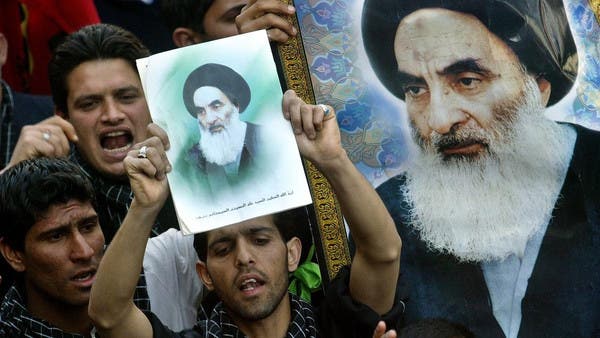ROME – If Pope Francis’s awaited trip to Iraq in March goes through as hoped, he will likely meet the country’s top spiritual leader for Shiite Muslims, taking his pursuit of interfaith dialogue one significant step further.
In a Jan. 28 press conference organized in collaboration with the French Bishops’ Conference, Cardinal Louis Raphael Sako, Patriarch of Babylon of the Chaldeans, said that during the pope’s March 5-8 trip to Iraq, Francis is scheduled to meet with Grand Ayatollah Al-Sistani, commonly known as Ayatollah Sistani, who is one of the most senior clerics in Shia Islam and is one of the Shiite’s most influential leaders.
During Thursday’s press conference, Sako said the meeting would be a private visit “without formalities,” and voiced hope that the two would add their signatures to the Human Fraternity document already signed by Pope Francis and the top authority in Sunni Islam, the Grand Imam of Al-Azhar Ahmad Al-Tayyeb.
The document, titled “Human Fraternity for World Peace and Living Together,” was signed by the pope and Al-Tayyeb during Francis’s visit to Abu Dhabi in 2019.
After the trip, the United Arab Emirates created a “Higher Committee for Human Fraternity,” tasked with the implementation of the document and which is composed of five Muslims, a Jewish rabbi, two members of the Roman Curia and one United Nations official.
Should Al- Sistani sign the document, it would mark a significant step not only in Pope Francis’s own efforts to advance interfaith dialogue, but also for the world of Islam as the religion’s two primary branches, often in conflict, commit to advancing peace universal brotherhood as Islam struggles to distance itself from the violence perpetrated in its name by extremists.
Division between Sunni and Shi’a Islam trace back to 632 A.D., when the Islamic Prophet Muhammad died, and a debate ensued over who should be his successor.
Two camps emerged, one – the future Shias – insisted that Muhammad’s successor should be someone in his bloodline, while the other, the future Sunnis, felt that a pious individual who followed Muhammad’s teachings was an acceptable choice.
Al-Sistani leads the bulk of Iraq’s Shi’a Muslim majority, as do many in Iran and several other parts of the world.
Some tension has arisen in Iraq in recent months after al-Sistani, 90, underwent surgery for a bone fracture in January 2020. Many observers are wondering what will happen after his death, with fears over the implications it could have on Iraq given current US-Iranian tensions, as al-Sistani was a vocal opponent of any foreign intervention in the country including from Iran.
While the ongoing coronavirus pandemic, recent acts of terrorism, and several bouts of sciatica have cast a growing shadow of doubt as to whether the pope’s visit to Iraq will actually happen, Sako has consistently insisted that despite the concern, plans are still moving forward.
Sako has been campaigning for the pope’s visit since as early as July 2019 and has repeatedly expressed his hope that the pope and al-Sistani would sign the Abu Dhabi document.
In a 2019 interview with Italian news agency SIR, the official news site for the Italian bishops, Sako said he believes “it’s very important to help people see each other as brothers and not as enemies or opponents.”
“We all live together, we work, we’re close, we don’t have to be afraid. A certain mindset and culture should change,” he said, adding, “I hope the visit of Pope Francis will represent a significant moment for our Shiite Muslim brothers.”
Noting that the Abu Dhabi Document was signed by a Sunni Muslim authority and not by a Shiite Muslim, he said that “If there is something to be changed in the content this can be done, although I believe it already enshrines the basic principles. It would signal a Muslim world united in saying no more wars, no more death and destruction. Human dignity is an absolute value.”
In Dec. 2020 comments to The National newspaper, Sako likened the pope’s visit to Iraq to his 2019 trip to Abu Dhabi, and again voiced hope that Francis would visit the city of Najaf, where al-Sistani lives.
Najaf itself, according to Sako, is only about a 20-minute flight from Baghdad, which Pope Francis is also expected to visit, along with several other cities including Erbil, Qaraqosh, Mosul, and the Plain of Ur, the birthplace of the biblical figure Abraham.
Should the Iraq trip happen as planned, Pope Francis will undoubtably use the occasion to reiterate the message of the Abu Dhabi document, and to further advance discussion on topics such as fraternity and solidarity, which were underlying themes of his recent encyclical, Fratelli Tutti.
For a pope who has made dialogue with Islam a bedrock of his papacy, this meeting could be pivotal in advancing his agenda.
Source: cruxnow.com






